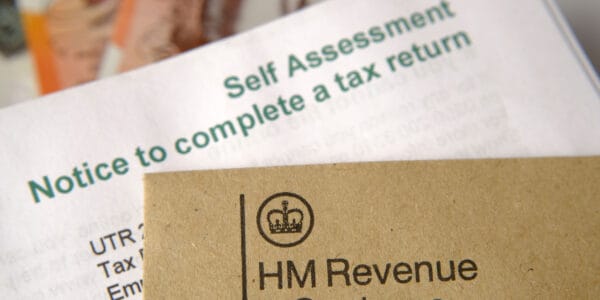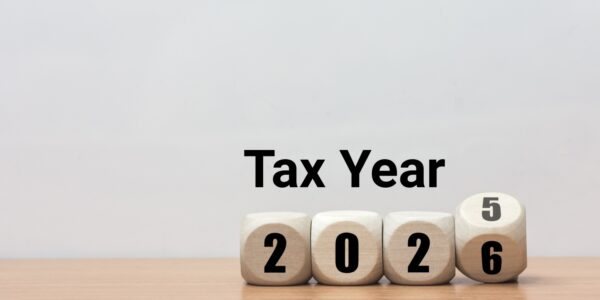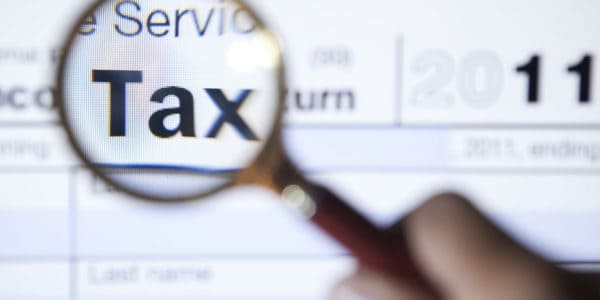Change can be pretty costly for business owners. Whether it’s deciding to sell your business, getting rid of major assets, or selling off shares in your limited company, chances are you’ll need to think long and hard about how much you actually stand to gain or lose by shedding, selling, or gifting part of your company – particularly where tax is concerned.
Fortunately, the UK Government has a special relief scheme in place that is designed to reduce the amount of Capital Gains Tax payable by business owners when they are disposing of certain assets. This scheme is called Business Asset Disposal Relief, which replaced Entrepreneurs’ Relief in Finance Bill 2020.
Key takeaways
- Understand your lifetime limit for Business Asset Disposal Relief to maximise tax savings during asset disposals.
- Claim Business Asset Disposal Relief through Self Assessment or by contacting HMRC within specified deadlines.
- Consult a tax advisor to navigate the complexities of qualifying conditions and ensure compliance with the relief scheme.
The scheme features a broadly inclusive set of requirements that could ultimately save you and your business a great deal of money in tax, so it’s worth getting to grips with the basics to gain a better understanding of how the Business Asset Disposal Relief scheme can benefit you and your business.
What is the Business Asset Disposal Relief scheme?
The Business Asset Disposal Relief scheme is a government tax allowance that reduces the amount of Capital Gains Tax you need to pay on the disposal of qualifying business assets. Those disposals must have occurred on or after 6 April 2008 and meet certain conditions throughout a one-year qualifying period that either includes the date of disposal or the date your business stopped trading.
It’s also important to note that, as an individual under the scheme, you are restricted to a lifetime limit for qualifying capital gains. The limits are as follows:
- £1 million for any qualifying disposals from 11 March 2020 onwards
- £10 million for any qualifying disposals from 6 April 2011 to 10 March 2020
- £5 million for any qualifying disposals between 23 June 2010 to 5 April 2011
- £2 million for any qualifying disposals between 6 April 2010 to 22 June 2010
- £1 million for any qualifying disposals between 6 April 2008 to 5 April 2010
Who can claim Business Asset Disposal Relief?
Most individuals, qualifying beneficiaries, and some trustees of settlements are permitted to claim Business Asset Disposal Relief. That being said, the scheme is not available to companies or to the personal representatives of deceased individuals. Trustees are also not permitted to claim tax relief using the scheme if their entire trust is a discretionary settlement.
- What is a business loan and how can my company get one?
- How can I sell my business?
- My company has failed: How do I bounce back?
Husbands, wives, and civil partners count as separate individuals as part of the scheme, which means that they’re also entitled to make claims up to the maximum amount available to individuals.
How much can you claim using Business Asset Disposal Relief?
Individuals or qualifying trustees can claim Business Asset Disposal Relief as part of their Self Assessment tax return. Alternatively, you can also claim relief by writing to HMRC by the first anniversary of 31 January following the end of the tax year in which the qualifying disposal took place.
If you are entitled to claim Business Asset Disposal Relief, qualifying gains for disposals made on or before 22 June 2010 will be reduced by 4/9, as well as the net amount charged to Capital Gains Tax at a rate of 18%.
For qualifying disposals made from 23 June 2010 until 5 April 2025, qualifying gains will be reduced by 4/9 plus the net amount charged to Capital Gains Tax at a 10% rate. The rate for disposals made on or after 6 April 2025 is 14%.
If qualifying gains and previous gains you’ve already claimed on Business Asset Disposal Relief exceed the lifetime limit we’ve already discussed, the excess claim for disposal will be taxed at a normal rate of Capital Gains Tax. This calculation will be made at the time your gains accrue.
In the current 2025-26 tax year, this means that if you work out the gains of your qualifying assets, add them all together and then deduct your tax-free allowance, you’ll only have to pay 14% tax on everything that’s left over.
There is no limit on the number of times you can claim tax relief under the scheme for assets you sell or dispose of. The only way in which you’re limited is the amount you can claim over your lifetime.
If you’re after some tips on how to claim relief, the UK Government has a helpsheet online.
Claiming Business Asset Disposal Relief as an individual
If you want to claim Business Asset Disposal Relief as an individual, you can do so when you file for Self Assessment. Yet to qualify for relief, you’ll need to meet the conditions outlined during your qualifying period.
You can claim relief up to your individual limit for one of the following categories:
- Assets used in your business that are being sold as part of the disposal of part or all of your business
- Assets used by your business or partnership that have been disposed of within three years of when your business stopped trading (this category doesn’t include shares or securities)
- Shares or securities in your limited company
- Your personal assets that are being used to continue the business (this category can only be claimed if the transfer of assets is associated with the disposal of your interest in the partnership or business)
It’s also worth noting that, as an individual, you can claim Business Asset Disposal Relief on any type of trade or profession apart from a business that includes the letting of property.
Depending upon the type of disposal you’ve made as per the above categories, there are different qualifying conditions you’ll need to meet to claim the relief. Conditions you should be aware of when attempting to claim Business Asset Disposal Relief as an individual include:
Disposal of whole or part of your business
If you are trying to claim Business Asset Disposal Relief disposing or some or all of your business, you must have owned the business directly, or you must have been a member of the partnership that owned the business. You can’t claim Business Asset Disposal Relief if you’re disposing of the assets of a continuing business unless the disposal encompasses a particular part of the business.
You must have owned the business directly or it must have been owned by a partnership in which you were a member. Business Asset Disposal Relief is not available on the disposal of assets of a continuing business unless they’re comprised in the disposal of a distinct part of the business.
Disposal of the goodwill of your business
If you’ve disposed the whole or part of your business to a company controlled by five people or less, and that disposal happened on or after 3 December 2014, any gain made on the goodwill that disposal included will not qualify for relief.
Disposal of assets after you cease trading
To qualify for the scheme through the disposal of assets after your business stops trading, you will need to have owned the business directly throughout the qualifying period, ending on the date your business stopped trading. The disposal you’re claiming for relief must also have been within three years of the date you stopped trading.
Disposal of shares or securities
- To claim relief on the selling or disposal of shares or securities of a company you own, your company must be trading or part of a trading group throughout the qualifying period. You must also be an officer or employee of that company. As per the scheme, you can claim a company as your personal company if you hold a minimum of 5% of the ordinary share capital.
Associated disposals
Disposal counts as associated disposal if it takes place as part of your withdrawal from a business you own or a business you’ve got a 5% stake in that you are also an officer or employee of.
To claim Business Asset Disposal Relief on associated asset disposal, the asset you are selling or giving away needs to be associated with a reduction of your interests in the business or your shares in the limited company. You don’t have to reduce the amount of time you spend working for the company to qualify for the tax break – only your financial interest in the company.
An example could be if you own a limited company trading as a consulting business and decide to sell all of your shares in the company to your sister. You can keep working full-time as a consultant for the company and still claim Business Asset Disposal Relief on the disposal of your shares.
Claiming Business Asset Disposal Relief as a trustee
If you are the trustee of a settlement, you are allowed to claim Business Asset Disposal Relief if you dispose of trust property like shares, securities, and the assets or trading company of a qualifying beneficiary.
That being said, you can only claim tax relief if you’re able to meet the following requirements relative to the category of asset you’re selling or disposing of:
Disposal of shares or securities
To claim on the disposal of shares or securities as a trustee, you need to be able to prove the company whose shares you’re disposing of belonged to the qualifying beneficiary or a trading company for at least one year leading up to the disposal of shares or securities. You cannot claim on shares or securities disposed of more than three years ago.
Disposal of assets used for the qualifying beneficiary’s business
If you want to claim on assets that were used for the qualifying beneficiary’s business, those assets need to have been used within the last year leading up to its disposal. The qualifying beneficiary also needs to have ceased carrying on the business from the date of disposal.
It’s also important to note that if you are a trustee of a settlement looking to claim tax relief on business disposal, relief awarded will ultimately reduce the amount of money the beneficiary is allowed to claim up to their lifetime limit of qualifying gains. Also, if there are multiple beneficiaries of the trust who have interests, just a part of the gain will ordinarily qualify for tax relief under the scheme.
Claiming as a husband, wife, or civil partner
We’ve already pointed out that it’s possible to claim under the Business Asset Disposal Relief Scheme as a husband, wife, or civil partner. Generally speaking, the rules surrounding these people are roughly the same as the rules applied to individuals claiming relief.
Each person is allowed to claim relief up to the maximum lifetime limit of qualifying gains. But it’s important to note that if you hold shares jointly with somebody else, in the eyes of the government you’ll be treated as holding an appropriate proportion of the total holding and voting rights.
The bottom line
The Business Asset Disposal Relief scheme is an ideal way to reduce the taxes you’re paying as an individual through Self Assessment of assets or shares you’re selling. It’s a relatively straightforward scheme that you can claim as many times or as many years in a row as you want to, as long as you stay within your personal lifetime allowance.
That being said, there are plenty of areas you’ll need to read up on and truly understand before attempting to claim. That’s why you should always contact HMRC with any and all questions you have about Capital Gains Tax, the Business Asset Disposal Relief scheme as well as claiming tax relief on the sale or disposal of any major business assets.
Likewise, it is definitely worth consulting a professional accountant or tax advisor before proceeding with attempting to claim tax relief using the scheme, or for more information.
Want to learn more about selling your business? Check out the Quality Company Formations Blog. There, you’ll find information about business transfers, conducting due diligence, legal requirements, and more.














Join The Discussion
Comments (2)
Hi James
I found your piece on Entrepreneur’s Relief most helpful.
We recently sold our business property that had been solely used to run our computer retail business from for over twenty years and intend to claim entrepreneurs’ relief on the capital gain from the sale of the property
The business is a husband and wife partnership and has no resale value or any other assets.
The property has always been treated as a non-depreciating asset and no rent was ever charged.
Do I have to completely close down the business or can I continue to use the trading name to work from home as a sole trader as a technical consultant / advisor in my area of expertise without jeopardising my right to claim entrepreneurs’ relief?
Thank you in advance.
Harry
Hi Harry
Thank you for your comment.
Unfortunately I cannot provide advice with regards a specific case, for various reasons.
I would recommend you seek advice from an accountant or tax expert. If you would like me to refer you to our accountancy partners Haines Watts, please let me know: [email protected].
Kind regards,
Graeme